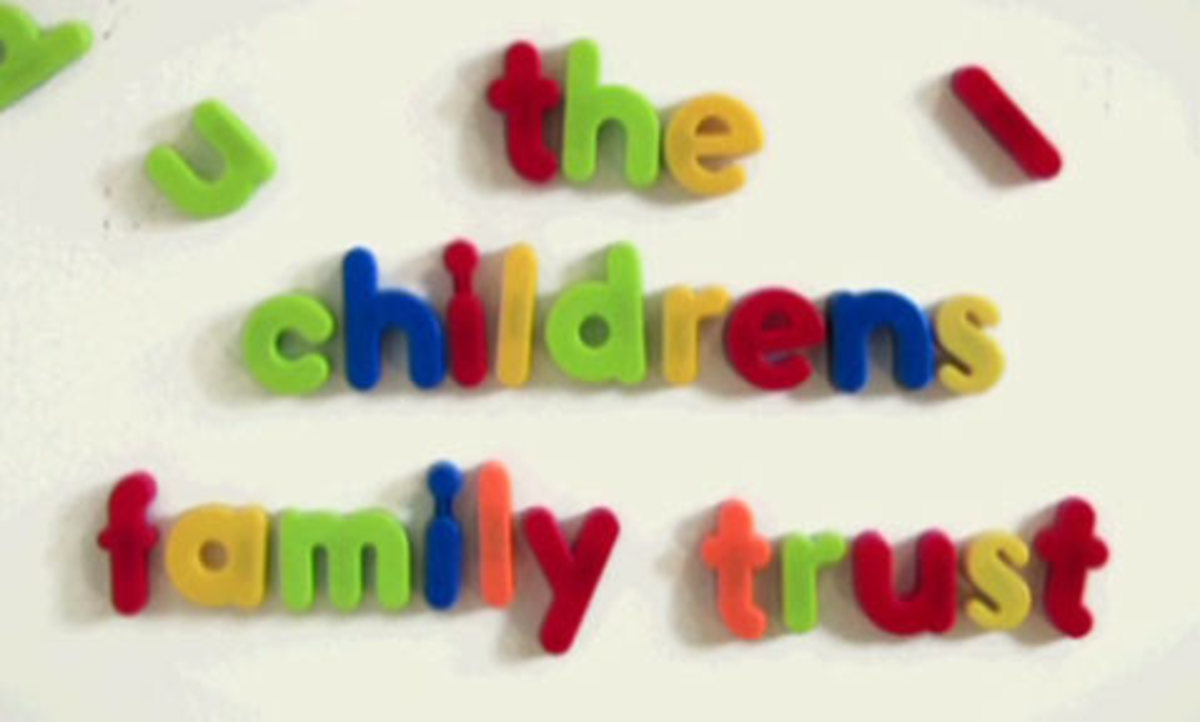How to Gain the Trust of Your Parents

To Trust, or Not to Trust
When I was just a kid in elementary school, one of my fellow students had some good advice for me. His name was Chris and he told me to "never believe what you hear and only half of what you see." Chris had already learned what others knew about this world - trust is a rare and precious commodity.
Sadly, it would take several more years and many broken relationships for me to learn the value of trust - most especially in the parent/child relationship. If you currently have a strong trust bond between you and your parents, do everything possible to protect that bond. If you have done something to damage the trust between you and your parents, then this article is for you.
Do Parents Expect Kids to Lie?
While it may seem like parents really do expect kids to lie, that's just simply not true. Parents want to trust that their kids are telling the truth. They need to know their children want to be honest and upfront about everything in their lives.
The only time a parent would lose trust is if that child has given a parent some reason for mistrust. If you have broken trust with your parents and want to gain it back, you're going to have to do a few things first.
Lying destroys trust. Honesty builds trust.
.
Truth is Always Best
Don't start lying. If you have started, stop now. If you have let lying to your parents become a habit for you, then you need to really take a step back and look carefully at your current situation. Maybe you have been caught in a lie, or soon will be. Getting caught is going to happen sooner or later.
The truth will always eventually come out. When you lie and that truth is finally revealed, the cost will be the trust between you and your parents. Lying only offers a temporary "fix" to a situation and destroys the bonds of trust between you and your parents. Remember, a lie may get you out of a difficult situation temporarily, but the truth will always come out at some point.
A Step-by-Step Plan to Regain Your Parent's Trust
Here is a simple list that is helping other people just like you to earn the trust of their parents
• Make a commitment to always tell the truth no matter what
• Be completely open with your parents and talk with them regularly
• Prove responsibility by doing more than what your parents ask
• Make a point to keep your grades up
• Think carefully about the decisions you make before making them
• Show due respect to adults and others around you
• Follow the rules at home, school, work - wherever.
When you choose to tell the truth, no matter how awful that truth may be, you're choosing to maintain that trust relationship with your parents.
Telling the truth, even in the little things, sends a message that you can be trusted. Make a habit of telling the truth and the relationship between you and your parents becomes stronger.
.
How You Can Prove Responsibility and Gain Back Trust
To be responsible means that you are willing to do what is right based on your choice to do so. It means your parents can trust that you will do the chores when they need to be done - without anyone asking you to do them. It means doing your homework as assigned without any reminders. It means doing something when it needs to be done even if that something is not your responsibility.
For example, if one of your chores is to mow the lawn, go the extra mile and trim the hedges as well. If you supposed to load the dishwasher, go ahead and clean off the counters, too. Get it?
Responsibility means you choose to do what you're supposed to do without being told to do it. Doing more than is required sends a message that you are responsible. When you do these things, your parents will get the message that you are a responsible person.
Guess what? Responsible people are also trustworthy people.
.
How to Make Good Decisions
Think carefully before you make any type of decision, no matter how minor you think it might be. Making stupid decisions is a sign of immaturity and irresponsibility. I can remember making a lot of thoughtless decisions like this when I was a kid growing up in Colorado. My parents were constantly lecturing me about it.
One such bad decision was choosing to go along with some kids who were grabbing onto the rear bumpers of city buses that passed our schoolyard on a regular basis. In the winter, the streets would be icy or snow-packed due to the traffic on the streets.
Someone got the idea that it would be fun to grab on to the bumper of a moving bus, and slide along behind. In our young minds, we thought it was great fun - until someone got seriously injured.
Sitting in the principal's office later, I still remember my father asking me how I made the decision to do what I did. The best excuse I could muster was that it sounded like fun at the time. In retrospect, that was a pretty lame excuse.
The good news is when I was older, I finally made the connection between the decisions I made and how that affected the level of trust my parents placed in me.
.

5 Steps to Help You Stop Lying
.
Step 1 - Be True to Yourself
Deep down inside, you know what is right and wrong for you. That is called a moral compass and everybody has one. When everyone around you is doing something that is dishonest or if they are lying about it, just decide if this is something with which you want to be a part. Decide to be honest and do right no matter what others around you are doing.
Step 2 - Realize That Telling the Truth is Actually Easier
Sure, it seems like telling a lie will get you out of a sticky situation or possibly get you what you want, maybe. The problem with lying is that you have to keep track of all your lies and eventually it's going to blow up in your face. Mark Twain said, "Always tell the truth. That way, you don't have to remember what you said." Wise words.
Step 3 - Start with Tiny Truths
If you have been lying for a good while and lying seems to come naturally, you could be a compulsive liar. In any case, if you tend to lie, simply start telling "tiny truths." For example, if you typically lie about your whereabouts after school, start making a point to tell the truth instead. Take tiny steps and start telling the truth in smaller things. This helps to develop a habit for telling the truth. This also makes you more responsible and trustworthy.
Step 4 - Call a Lie What it is - a Lie
This may seem like a simple thing that anyone can understand, but some people may be lying even when they don't know it. For example, if a friend picks up your phone and you ask them to tell the caller you are not there, that is a lie. Knowing something is wrong and choosing to not say anything is also a lie of omission. Look deep inside yourself - you know the difference between telling the truth and telling a lie.
Step 5 - Realize Why You May be Lying
Simply put, most people lie because it gets them what they want, makes them look or feel better. Doesn't that say something?
Think about it - you may have lied to be included in a group, maybe to get your way or you simply afraid if your parents knew the truth, they wouldn't love you. These are the reasons people are dishonest - to get something better. Sadly, the cost is low self-esteem, relationships built on falsehoods and deep insecurity.
Note: Change takes time. Don't be hard on yourself if you find it difficult to stop lying immediately. It took some time to develop the habit, it may take some time to get rid of it. An easy way to stop lying quickly is to simply stop and think before you speak. Make this your new habit and the lying will disappear in no time.
.
Trust Broken Can be Re-Earned
Yes, breaking trust in any relationship is likely to have some pretty serious consequences. The trust bond between you and your parents is almost like a living thing. Once that trust bond is destroyed it can never be restored - at least not to what it was before. Trust broken is trust gone. But don't lose hope. A new trust relationship can be established, rebuilt.
If you want to gain your parents trust back from your parents, they need to see an established, repeated pattern of you doing the things mentioned in this article. Show them you are responsible, hard-working, making good decisions and that you are willing to be more open with them. Repeat these things and you will soon gain trust back from your parents.
________________________________________________________________
More Information Regarding How to Gain the Trust of Your Parents...
- Teen Life Q & A - Lost Parents Trust - How Do I Get It Back?
Teen life can be confusing and you may be filled with questions. This week we look at how to gain back lost trust. - How to Gain Your Parents Trust
We need to be very careful when it comes to win parent’s trust. If you are confused that how you should regain or win your parent’s trust then try out these tips - Tips For Teens: How To Win Back Your Parents' Trust
You're not the first kid to make a mistake or lose your parents' trust, but you can earn it back with honesty and sincerity. Here are some tips and advice on building a better relationship with your parents.
________________________________________________________________





